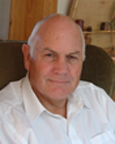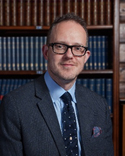 Emeritus Professor of Physics, University of Manchester
Emeritus Professor of Physics, University of ManchesterAbstract:
Pulsars are rapidly rotating neutron stars and are some of the most exotic objects in the universe. They are mostly only observable using radio telescopes. In this talk, I will provide an introduction to pulsars and how they are formed in the violence of the supernova collapse of large stars. I will describe how these massive cosmic flywheels can make superb clocks which can be used to conduct unique experiments in gravitation. In particular, they can be used to explore some of the fundamental laws of physics that determine how the universe evolved.
Bio:
Andrew Lyne is renowned for his research into pulsars, while based at the University of Manchester, Jodrell Bank. He was elected Fellow of the Royal Society in 1996 and was Director of Jodrell Bank Observatory from 1997 to 2006, and has been an Emeritus Professor of Physics at the University of Manchester since 2008. His main areas of contribution have been in searches for pulsars, the characterisation of their properties, the measurement of their velocities and the study of their galactic distribution and evolution.
 Curator of Time, Navigation and Transport at the Science Museum
Curator of Time, Navigation and Transport at the Science MuseumAbstract:
What time is it? We are surrounded today by accurate time. We can hear time signals on the radio or look at automatically corrected kitchen clocks. Our home computers are synchronised by the internet or we can pick up the telephone and call the speaking clock. But how did people check the time before all this existed? In this lively illustrated talk, David Rooney tells the tale of how precise Greenwich time has increasingly been distributed around Britain, Europe and the world from humble local beginnings in the early nineteenth century. It includes stories of scientists and telephonists, terrorists and horologists, poets and paupers, bombers and bell-ringers, from millionaires and murderers to the Greenwich Time Lady and the Girl with the Golden Voice. Rooney reveals the human faces behind the remorseless tick of the clock.
Bio:
David Rooney is a curator in the Technologies and Engineering Group at the Science Museum, London, where he has responsibility for the time, navigation and transport collections. He writes and speaks widely on the history of technology, measurement and infrastructure and is currently writing books on the history of mathematics and the history of traffic. He curated the Science Museum's award-winning Codebreaker exhibition on Alan Turing's life and legacy and is currently working with Zaha Hadid Architects on the Museum's new mathematics gallery. He is a Liveryman of the Worshipful Company of Clockmakers and a trustee of several horological charities.